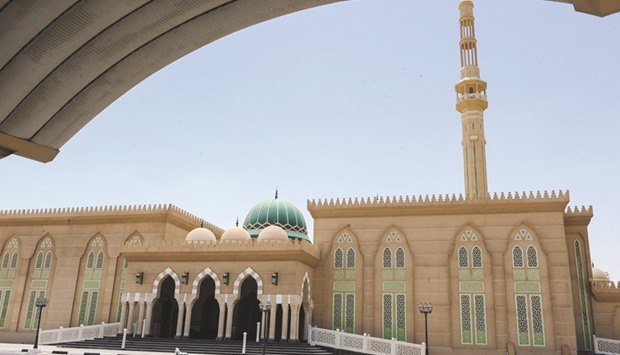In Ramadan, people pray, fast, perform ‘Umrah (the minor pilgrimage), spend in charity, supplicate and recite the Qur’an, yet the question remains: have any of these good deeds been accepted? Allah The Almighty Says (what means): {…Indeed Allah only accepts from the righteous [who fear Him].} [Qur’an 3: 27]
Fudhaalah Ibn ‘Ubayd would say, “If I knew that Allah had accepted from me (something) as minor as a seed’s weight of good deeds, then that would be more beloved to me than possessing this world and all that it contains, because Allah Says: {…Indeed Allah only accepts from the righteous [who fear Him].}.”
Our righteous Salaf (predecessors) would exert extra efforts in worship and then rebuke themselves and doubt that their deeds were even accepted by Allah The Almighty. They were described by Allah The Almighty as (what means): {And they who give what they give while their hearts are fearful} [Qur’an 23: 60] They would be far more concerned about the acceptance of the deeds than the amount of good deeds they performed.
What good is left for those who miss out on the virtue of Ramadan? What greater disaster is there for them than being deprived of the mercy and forgiveness of Allah The Almighty in this month? Moreover, the pious people from whom Allah The Almighty accepts righteous deeds have one distinctive trait, which is refraining from sinning after the end of Ramadan.
Many people think that since they have performed scores of good deeds they can rely on these deeds, believing that they have enough good deeds in their record. However, the genuine pious people are those who continue to be devout worshippers even after the conclusion of the month. When Allah The Almighty describes the devout believers and worshippers, He does not restrict their devotion and obedience to a limited period; rather, He describes them to be this way always, not only during Ramadan.
He Says (what means): {Certainly will the believers have succeeded: They who are during their prayer humbly submissive. And they who turn away from ill speech. And they who are observant of Zakaah. And they who guard their private parts.} [Qur’an 23: 1-5]
Muslims are commanded to be devout worshippers until death. Allah The Almighty Says (what means): {And worship your Lord until there comes to you the certainty [i.e., death].} [Qur’an 15: 99] One must persevere in worshipping Allah The Almighty and being obedient to Him. This may be the reason why it was legislated for us to fast six optional days in the month of Shawwaal (which directly follows the month of Ramadan) and this was made equivalent in reward to fasting for the whole year, because the reward is multiplied tenfold. Therefore, the 30 days in Ramadan are equal to three hundred days, while the six that follow in Shawwaal are equal to 60 more days – which constitutes a full year, in terms of reward.
Many people are deceived by the acts of worship they perform during Ramadan. They exert great efforts in completing the whole Qur’an once in Ramadan – with some even completing it several times – and praying the Taraweeh (voluntary night prayers). Others might wait in the Masjid after the end of one prayer till the time of the next one, and be engaged in mentioning Allah The Almighty from the Fajr (morning) prayer until sunrise (the reward for which is like that of performing a Haj and an ‘Umrah). However, although they perform all these deeds, they are not inwardly sincere and their intentions may become corrupted and impure. Shaytaan (Satan) may whisper to them, making them feel that, having performed all these good deeds, they have accumulated mountains of rewards, and that their balance is therefore very high. This makes them become arrogant and they may start slackening in their worship.
However, if one recalls a single verse from the Qur’an, such thoughts and feelings would immediately cease. It is the Saying of Allah The Almighty (which means): {And do not confer favor to acquire more.} [Qur’an 74: 6]
Article source: http://www.islamweb.net/emainpage/
Words of wisdom
l The best knowledge is that which benefits, and Allah only causes knowledge to benefit a person when he acts upon it once having learnt it and He does not cause it to benefit the person that leaves it after having learnt it.
l Knowledge without action is like a tree without fruit.
l You are now in the preliminary world, in front of you are two places of abode, out of which you must live in one of. You have not been given assurance of protection, causing you to feel safe. Nor have you been granted acquittal, causing you to slacken.

